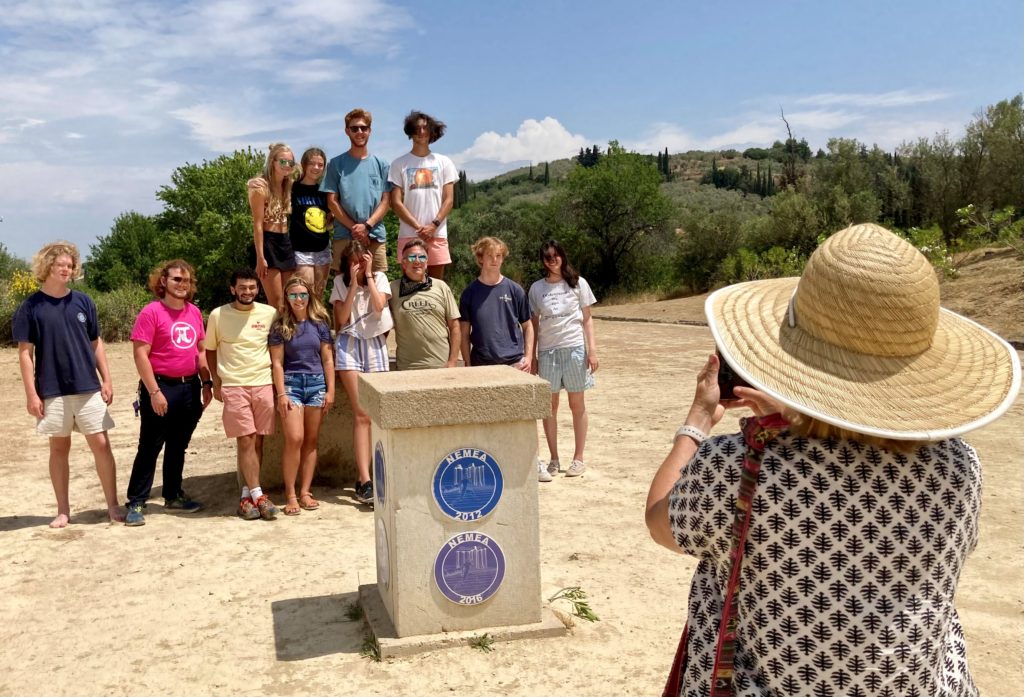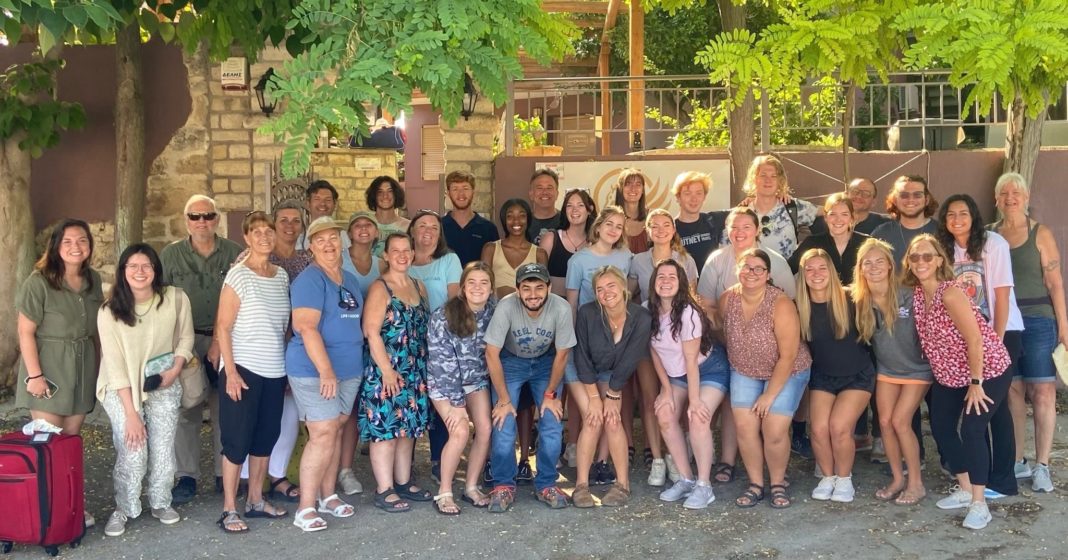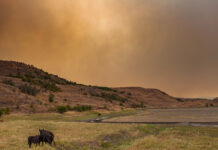Surrounded by ancient art and architecture and standing on the same ground where great philosophers once walked, Mercer students learned to better see and understand the world around them.
Every summer, Mercerians travel to Greece for a four-week study abroad program. Twenty-one students, three faculty members and 10 adults in the University’s Lifelong Learners program participated in the 2022 trip.
The Greece program was created by philosophy professor Dr. Charlotte Thomas, who has been leading students on international experiences since 2000. That first trip, in which she took a dozen students to Paris for two weeks, was a learning experience that sparked a desire for more.
“I expected to enjoy the city, food, culture and museums,” Dr. Thomas said. “What I didn’t really understand about study abroad before I did it were the conversations that are possible when you have a group in one place and there are no distractions. It really changes the nature of the educational process. I got home from that trip to Paris in 2000 amazed by what it was and what was possible.”
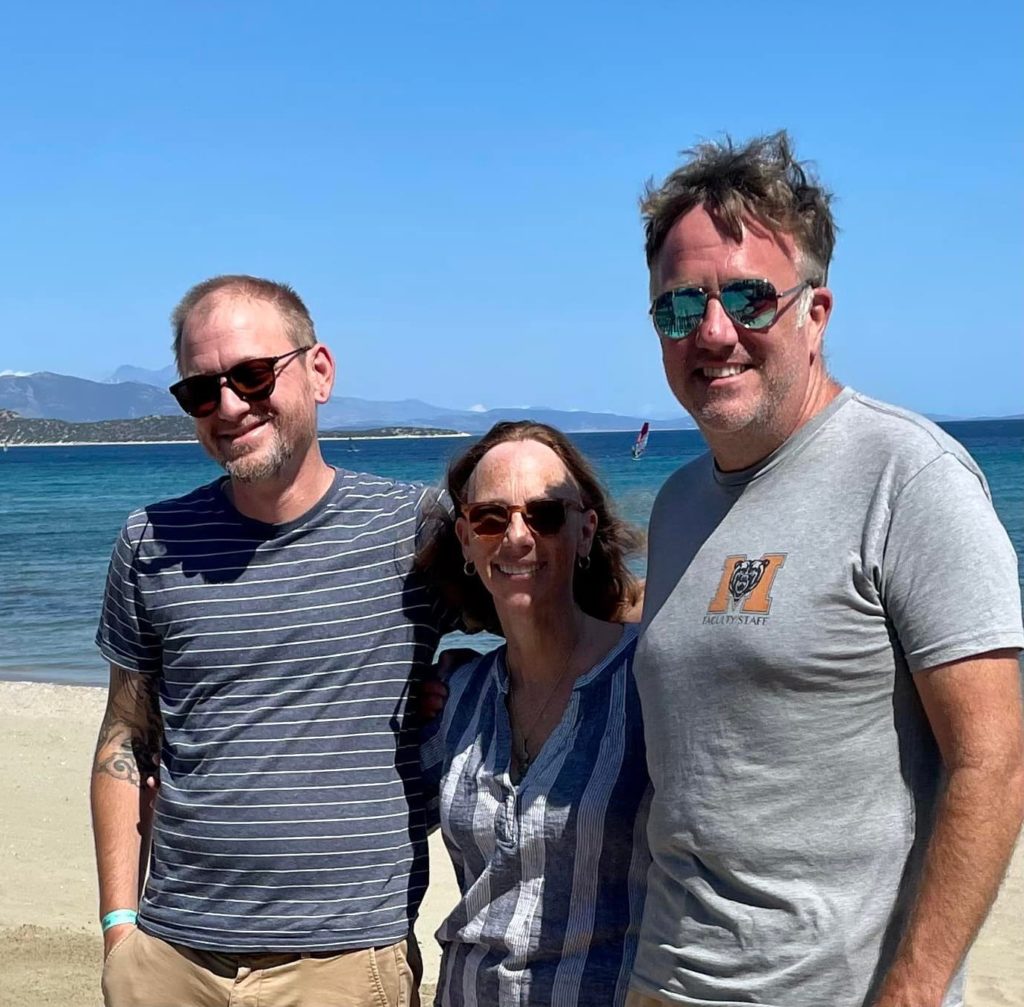
Dr. Thomas took students to Italy the following summer and recruited art professor Eric O’Dell to add another level of instruction to the experience. They have been friends since their undergraduate studies at Mercer. O’Dell said the 2001 trip was his first time abroad, and he’s been on almost every study abroad trip with Dr. Thomas since.
In 2005, Dr. Thomas fell in love with Greece while accompanying Dr. Robert Scott Nash, professor of New Testament, on his study abroad trip. That inspired her to reorganize her program, so it included a three-city rotation of Paris; Florence, Italy; and Athens, Greece, but she eventually decided to focus solely on studies in Athens.
The Mercer students earn six credit hours while in Greece. Everyone takes Philosophy 269: Human Nature and Art with Dr. Thomas, and then they have the option to take an art course with O’Dell or an Integrative Curriculum (INT) course with a third faculty member. This summer, Ben Dunn — art lecturer and director of the McEachern Art Center — joined the program for the first time and taught INT 301/ART 380: Repatriation at the Parthenon.
“To go to one of these great cities is to be able to see these remarkable products of human genius. It’s not just sculpture but buildings, paintings and theaters. Seeing it matters, so learning how to see it matters,” Dr. Thomas said. “Ben’s class is learning to see the context of these objects and what this context implies. Eric’s art class is teaching them how to literally see things and get that connection between their eye and hand. I’m trying to get them thinking about the meaning and the themes.”
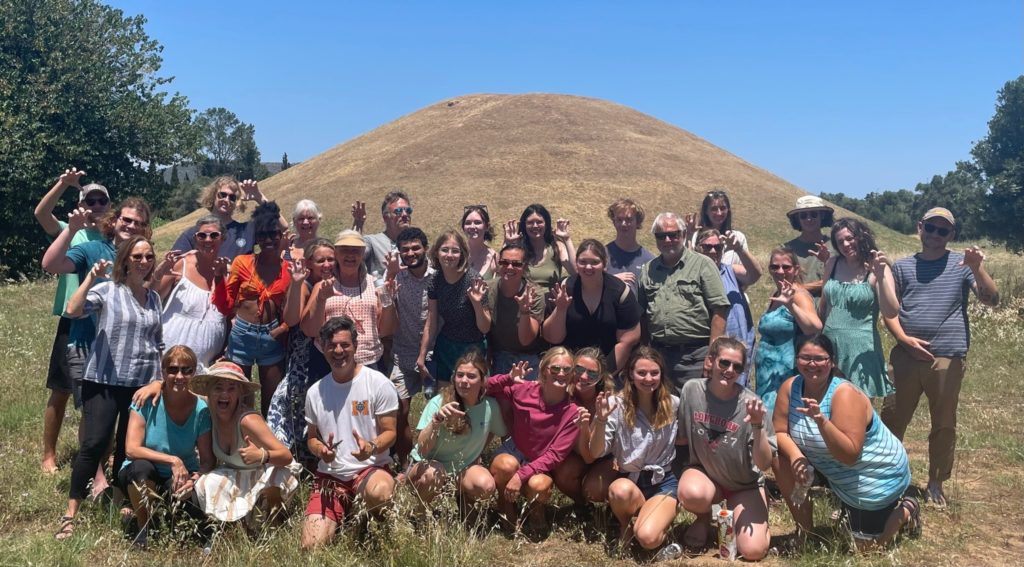
New this year, participants spent one week in ancient Corinth, in addition to three weeks in Athens. Each week, they had four days of course work, followed by an unprogrammed three-day weekend to spend as they wished, Dr. Thomas said.
They stayed in apartments, allowing them to cook for each other and use common spaces for class meetings. Having that “home base” has been an important part of the program, O’Dell said. Students experience these famous sites together while also living in the neighborhoods.
In the evenings, the group met on the rooftop of the apartments and learned from Dr. Thomas about the sites they would visit the next morning, which included the Acropolis, Kerameikos, Agora, Mycenae, Nemea, Delphi, Aristotle’s Lyceum and Plato’s Academy. Dr. Thomas focused on the history of the works of art and architecture as well as how they can help us understand the human condition.
Then after lunch, students went to seminars for their other class. During his INT course, Dunn used examples of Grecian antiquities to teach students about global instances of repatriation, legacies of colonialism, and ideas of imperial politics and cultural property. Students read ancient works by Roman philosopher Cicero as well as modern academic journals and United Nations charters; listened to podcasts; and analyzed current events.
“My goal was to open up the questions and really try to hold them open,” Dunn said. “The degree of engagement that the students offered made it really successful.
“You would hear dialogues from class continuing, and then they would come up in a museum the next day. Being close to that and being able to pick up on their enthusiasm was incredibly energizing. They were able to take pretty tough, nuanced ideas and give life to them. The best feedback you can feel is people wanting to learn.”
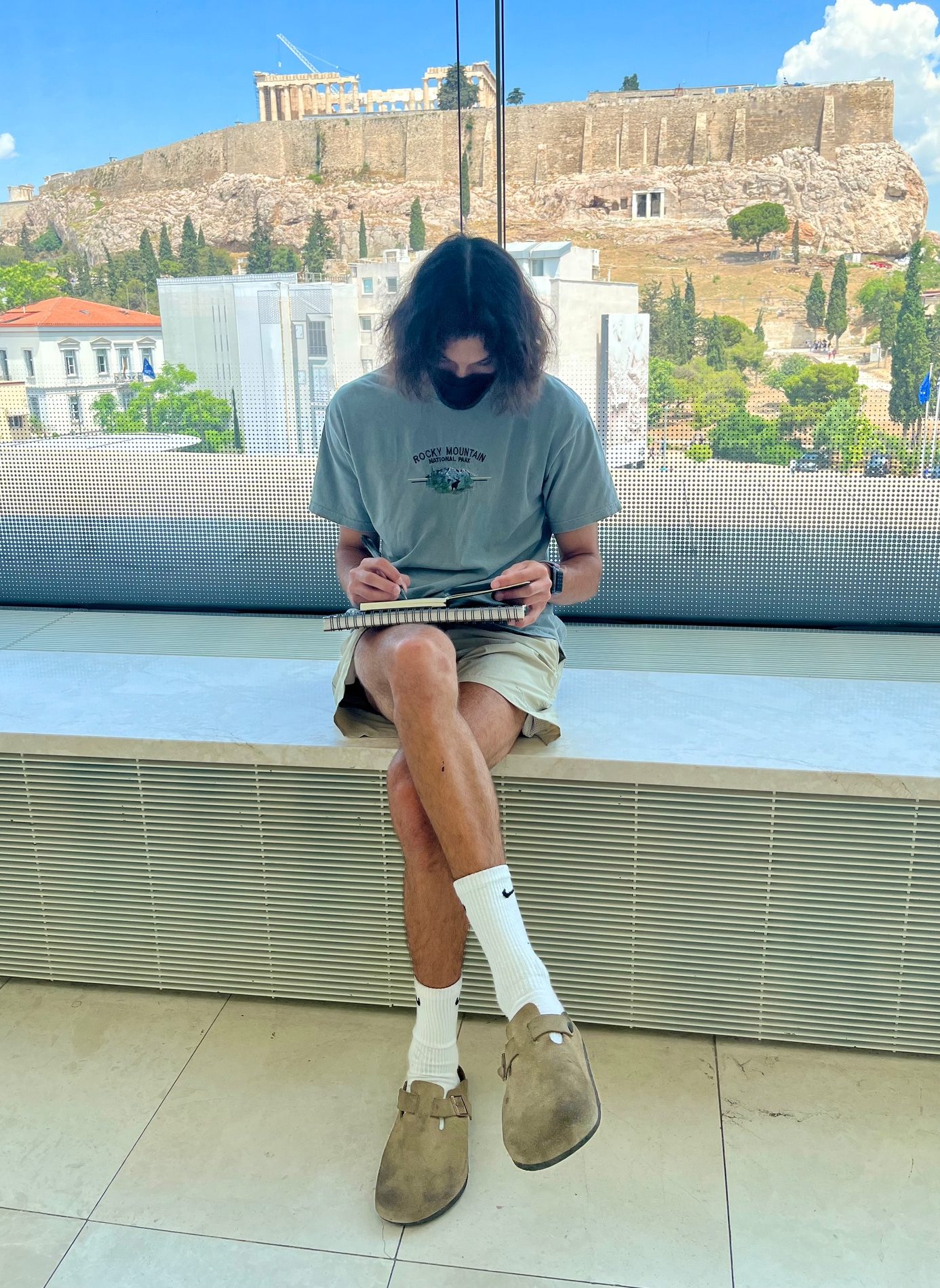
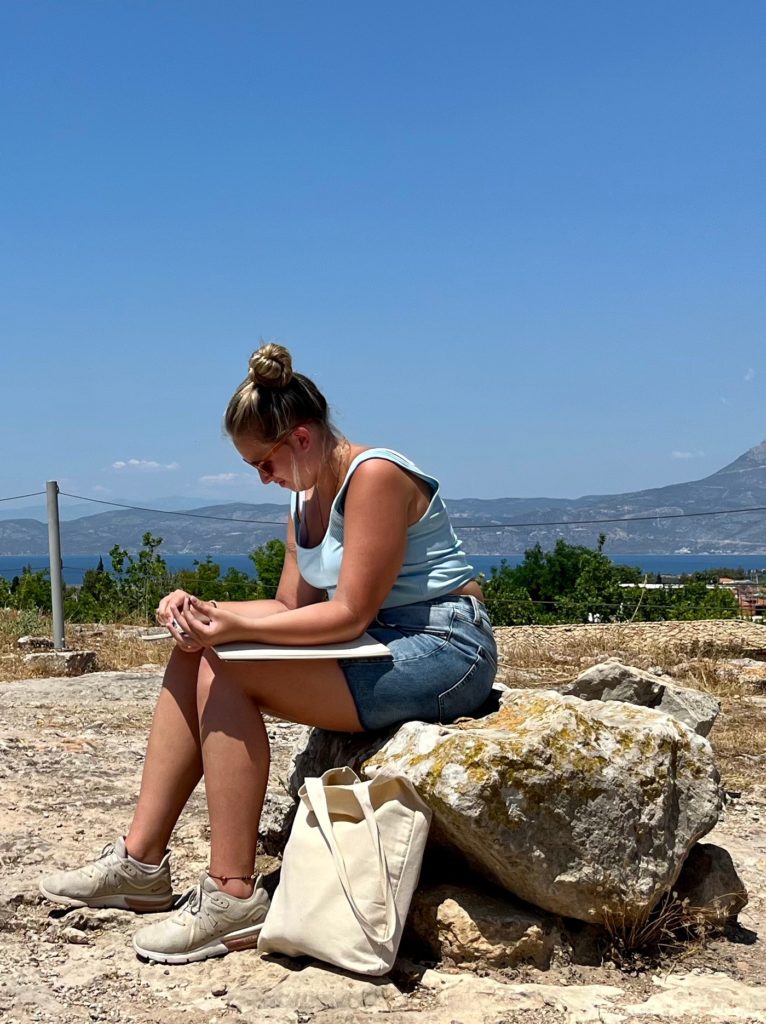
Students from a variety of majors studied art with O’Dell, taking either Art 115: Fundamentals of Drawing or an advanced, independent study course catered to their interests. In addition to class sessions that focused on skills and techniques, they sketched at the Grecian sites. O’Dell said the goal was to help them gain perspective through their art.
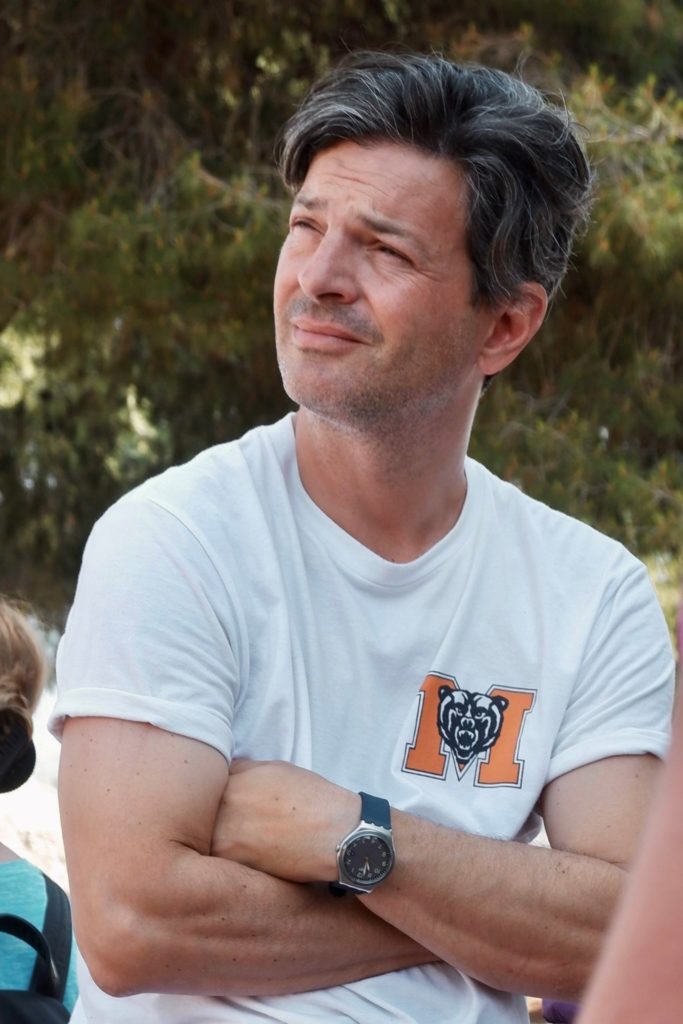
“There is no secret vitamin or genetic strain that means you can draw. The real work and the real important thing I think I do as a teacher is to get people to see more clearly,” he said. “To go and see things in the place where they were born is to see them in their full context. It’s mysterious. It can be kind of overpowering. You really are encountering the thing itself. I think that for my class, you’re touching it with your eyes.”
Athenian George Kokkos, a historian and archaeologist, has been a continual presence and source of expertise for this Mercer study abroad program. He leads educational seminars and tours in Athens for school groups and met Dr. Thomas and O’Dell by chance about a decade ago. Kokkos said they discovered there were many things that connected them, and he was impressed by Mercer’s traditions, philosophy, leadership and educational environment.
Every summer since, he’s spent time with the Mercer group, joining them for field trips, classes and seminars and sharing his knowledge. Kokkos counts Marathon, Epidaurus, Delphi and Corinth among his favorite sites to share with others.
“I developed a special, personal connection with the faculty at Mercer, so Mercer has always been my priority these last few years,” he said. “One of the most important things for me is the interaction that we have with students and their willingness to learn and be open-minded.”
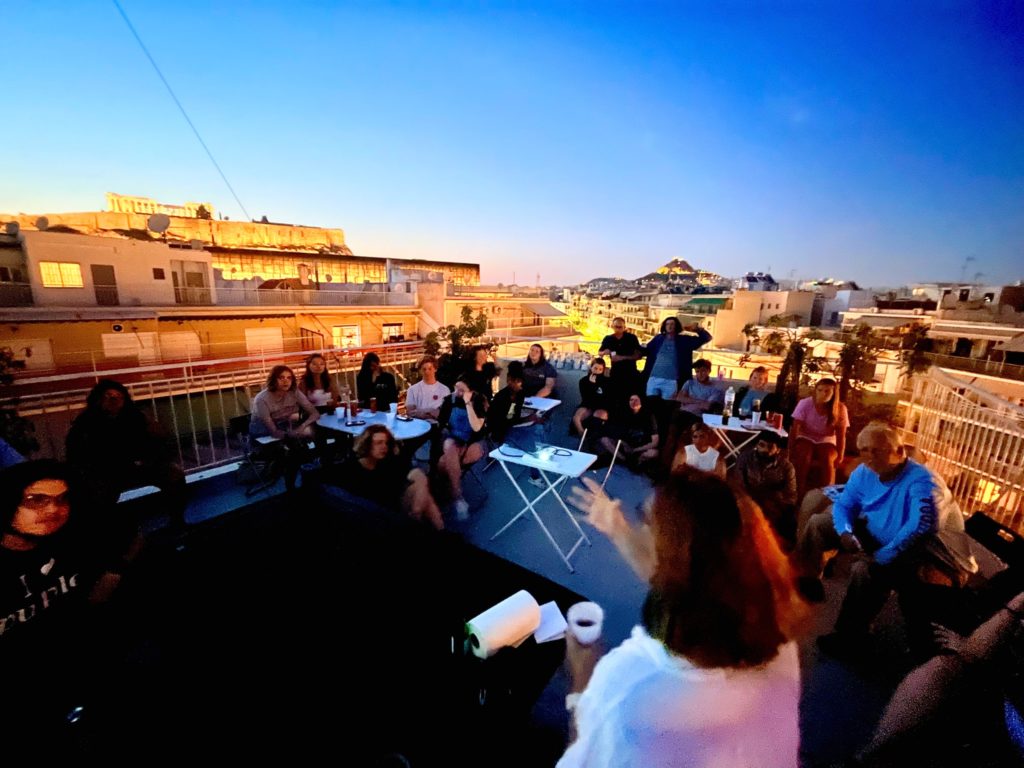
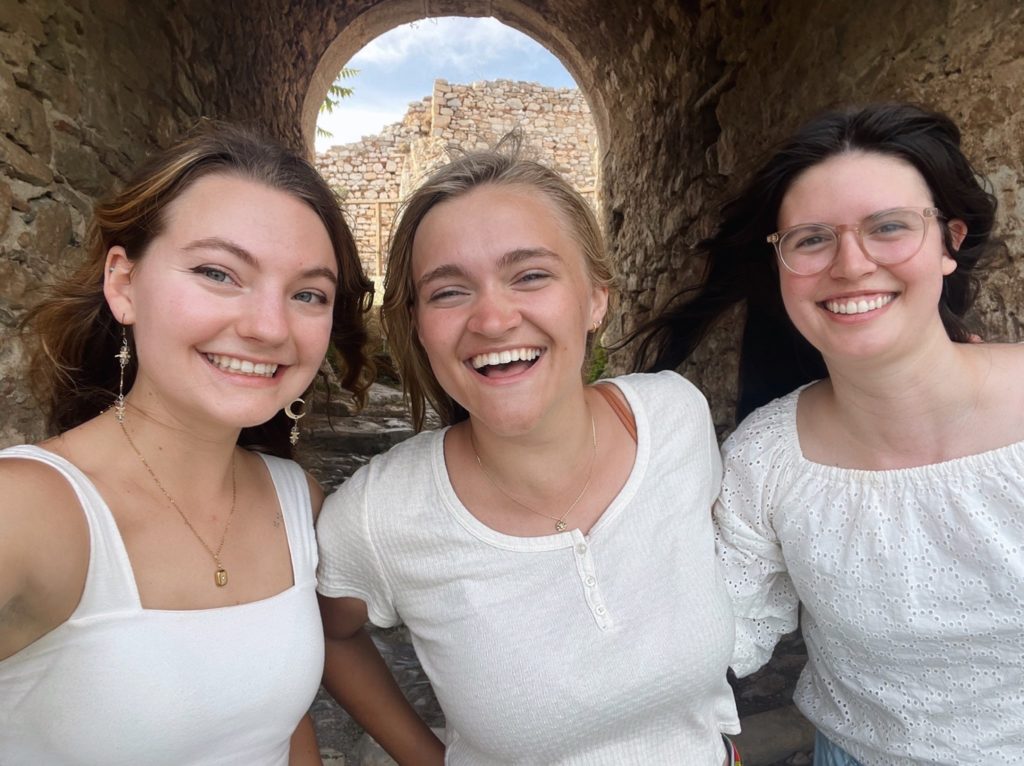
Rising sophomore Kate Zeumer, an English major, took her first art class in Greece and saw her skills improve. Greece has always been a dream travel destination for her, and she challenged herself to be more adventurous on this trip and make the most of her time there. She said it was exciting to study art and philosophy in a city where the culture is built upon them.
“The immersion was a big part of it for me. That definitely helped me to acclimate to the classes better. I was getting to see in my own time what we were going to be talking about in class,” she said. “I can’t understate how amazing this trip was. For dinner most nights, we would go out and sit on the roof. We had an amazing view of the Acropolis, and we’d talk about our day. To make those connections with people over something like this was so amazing and really helped me to grow as a person.”
Rising sophomore Anthony Guerrero was a marketing major on the pre-med track when he embarked on the study abroad trip and switched to a double-major in philosophy and French upon his return. In addition to the Human Nature and Art philosophy course, he did an independent study philosophy class with Dr. Thomas while in Greece.
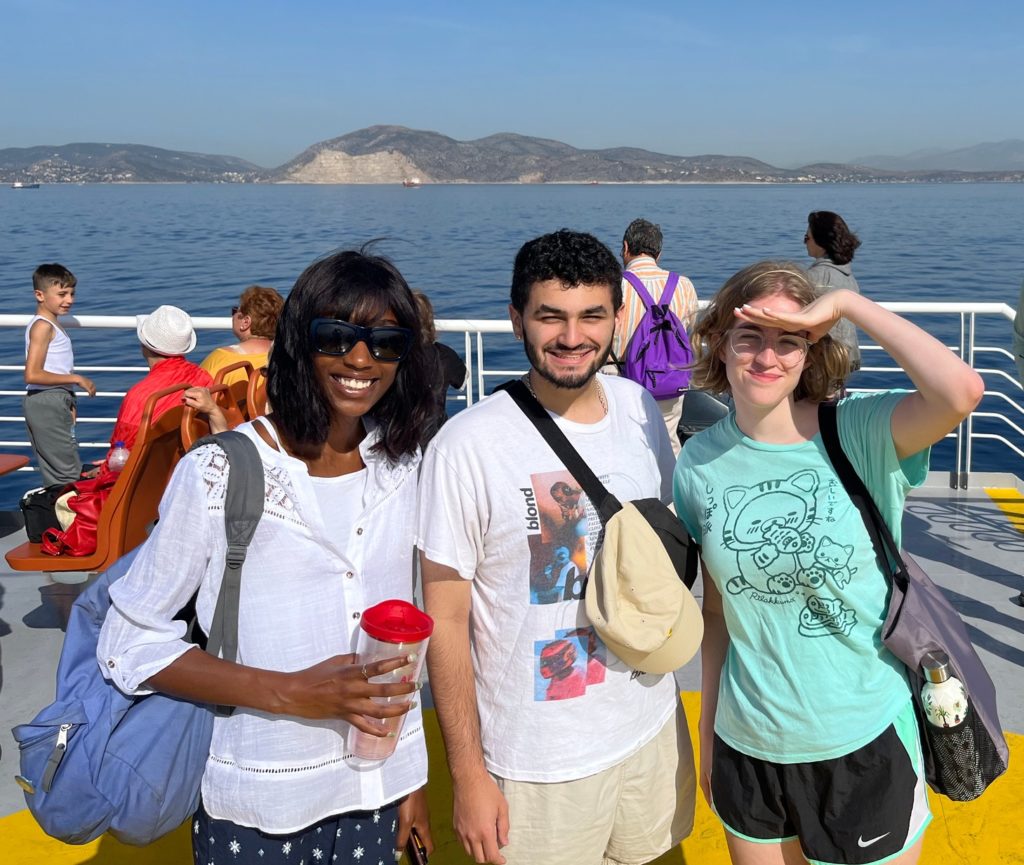
“Everyone on the trip was so passionately dedicated to learning, and the professors were so passionately dedicated to facilitating that learning. It made me realize this is what I love; this is what I want to study; this is what I’m sticking with,” he said. “It was one of the best experiences ever. There’s something so much more profound and educational about being out with what you’re learning about, interacting not only mentally but also physically.”
This most recent Greece trip became a full-circle moment for some of those involved. Dunn first traveled to Greece with Dr. Thomas and Dr. Nash in 2005 as a Mercer student, igniting his love for the country. Then in 2006, he went to Paris with Dr. Thomas and O’Dell, who also brought his wife, Greta, and two daughters, Helen and Elizabeth.
This summer, Dunn joined the program as a professor, and Greta and Helen, now a Mercer rising junior majoring in graphic design, participated once again.
“There was a beautiful circle that had been made,” O’Dell said. “To walk among the sites with a person who had been a student and was now my colleague in the art department was very nice. I think it was also very Mercer.”
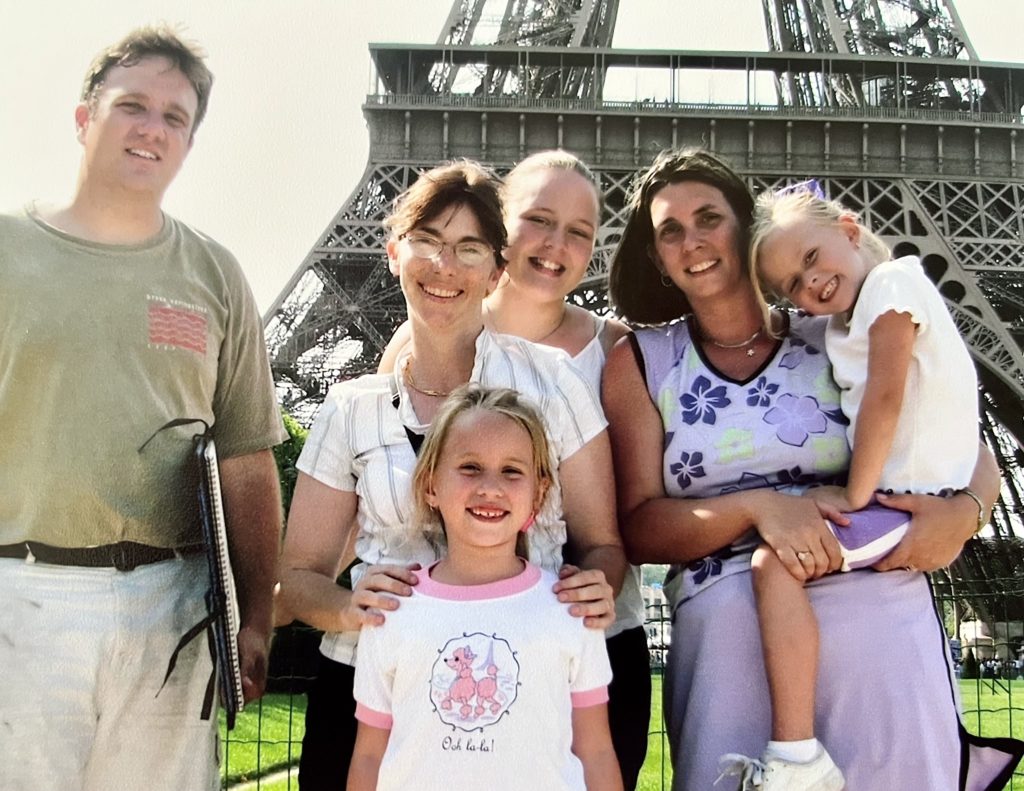
Dunn also was able to meet up with Dr. Nash, who was in Greece with another group for a Mercer On Mission trip — a reunion that was 17 years in the making, he said.
“Study abroad was really transformative for me as an undergraduate,” Dunn said. “I’ve been lucky to join the faculty at Mercer, and it’s so much fun to pass some of those experiences down and to see students growing in a way that I can relate to. I love traveling, and I love seeing that spark kind of come to life in younger people. They’re gaining access to the world in a new and very special way.”
O’Dell said one of the greatest thrills of being involved in this study abroad program has been sharing in the students’ wonder. Many of them have not traveled much before, and some never thought they’d have the opportunity to do so.
“The next thing they know, they’re walking into where Socrates lived,” he said. “They realize they are absolutely supposed to be there. For them to find that journey of intellect and maturity, that’s where I get my sense of wonder from … from them.”
Kokkos said it’s life-changing for the students to have this immersive study abroad experience.
“You live the experience,” he said. “It’s wonderful to read a book and imagine things. But when you actually go there and see the places and live in those places that you’ve only read in books, it completely transforms your thinking. It transforms everything inside you.”
